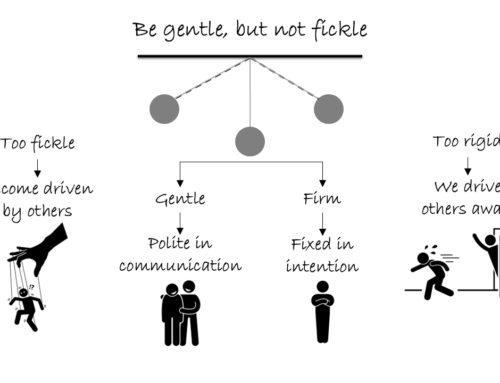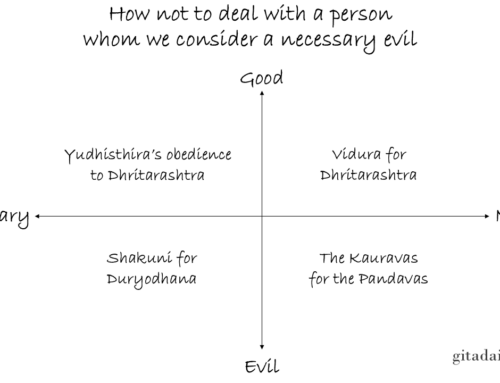Life often presents tough problems. Even when we genuinely wish to solve them, it’s not easy to pinpoint clear, actionable causes. It’s much easier to give in to our emotions and direct our wrath at whoever we are mad at. However, this approach never fixes problems; it only traps us in self-created delusions about why our problems remain unsolved.
We might start with some grievances—genuine, petty, or imagined—against someone. Then, when something terrible happens, we might find ourselves too fed up or worked up emotionally to make the intellectual effort needed to figure out why it happened. Why did the economy falter so badly? Why did a political candidate we hate get elected? Why did an office rival get that promotion we thought we deserved? Why did a neighbor we dislike get invited to an exclusive party while we were excluded? Why didn’t that person acknowledge us at a social gathering?
When such grievances arise, we can easily find someone to blame for the next bad thing that happens. It doesn’t require Sherlock Holmes-level deduction—our biases quickly conclude that the person we were already mad at must be responsible.
To make matters worse, we often feel further outraged when others don’t share our analysis of the supposed villain. A few might politely doubt our conclusions, while others might openly mock them. When our detective work isn’t celebrated, it becomes yet another reason to be angry.
This escalates into a perpetually outraged mentality, where we need only a small trigger to lash out at our favorite—or most hated—villain. Such habitual anger, as described in the Bhagavad Gita (16.4), is characteristic of the demoniac nature.
Even if we don’t fall into this mentality ourselves, we probably know people who do. These individuals are often so convinced of their rightness and righteousness that it’s nearly impossible to present alternative perspectives. While it’s easy to condemn their stubbornness, we can at least learn from their example to ensure we don’t fall into a similar pattern of grievances and villainization.
Summary:
- Finding someone to blame for a problem is much easier than understanding the complex causes of the problem and working toward a solution.
- When we play the blame game, whoever we are emotionally mad at becomes the culprit for whatever bad thing happens next.
- When others don’t agree with our analysis of the villain, it fuels additional layers of outrage, locking us in a perpetually outraged mentality.
Think it over:
- Reflect on whether you have ever blamed someone you were mad at for something bad that happened. What checks can you implement to avoid such default blaming?
- What are the four stages through which people end up in a perpetually outraged mentality?
- Why do people often shift to blaming others when faced with a difficult situation?
***
16.04 Pride, arrogance, conceit, anger, harshness and ignorance – these qualities belong to those of demoniac nature, O son of Pṛthā.





Leave A Comment